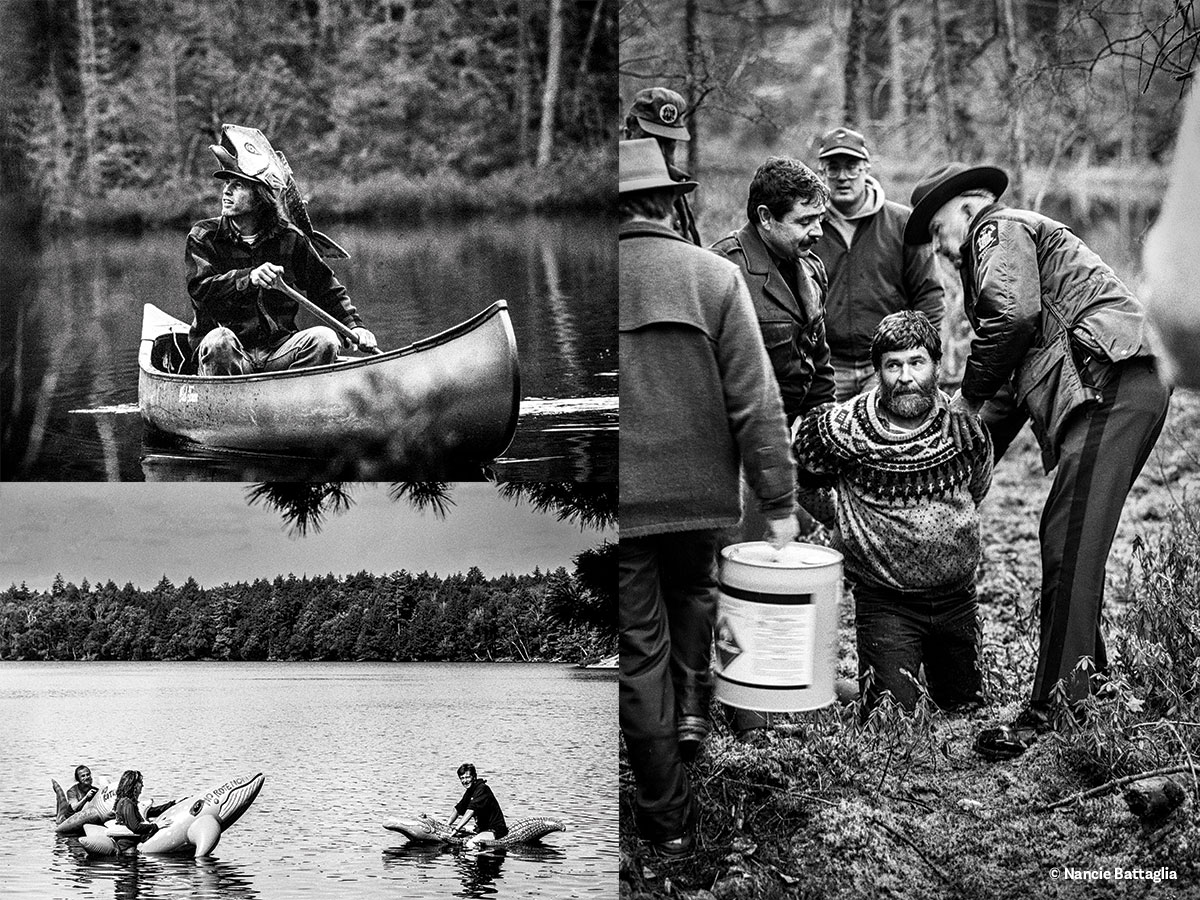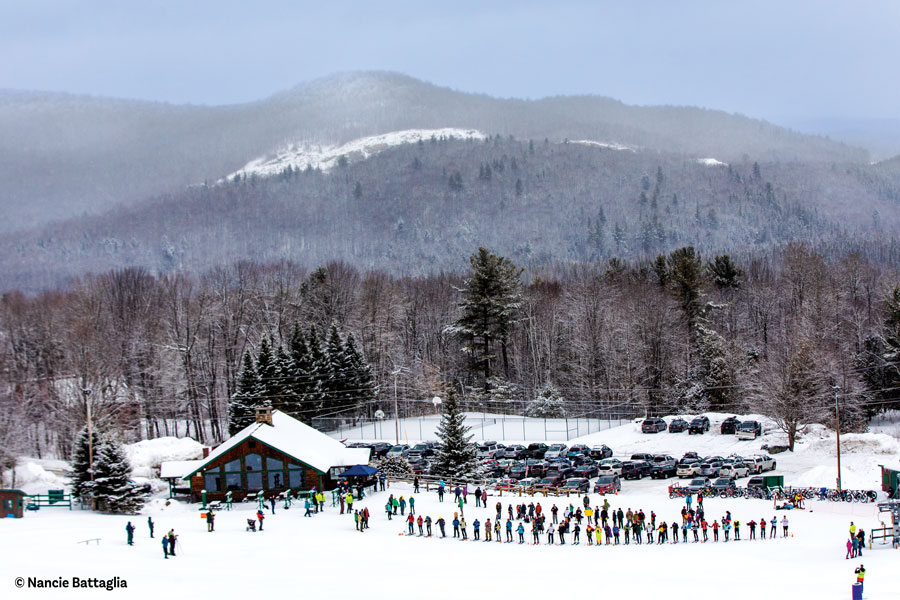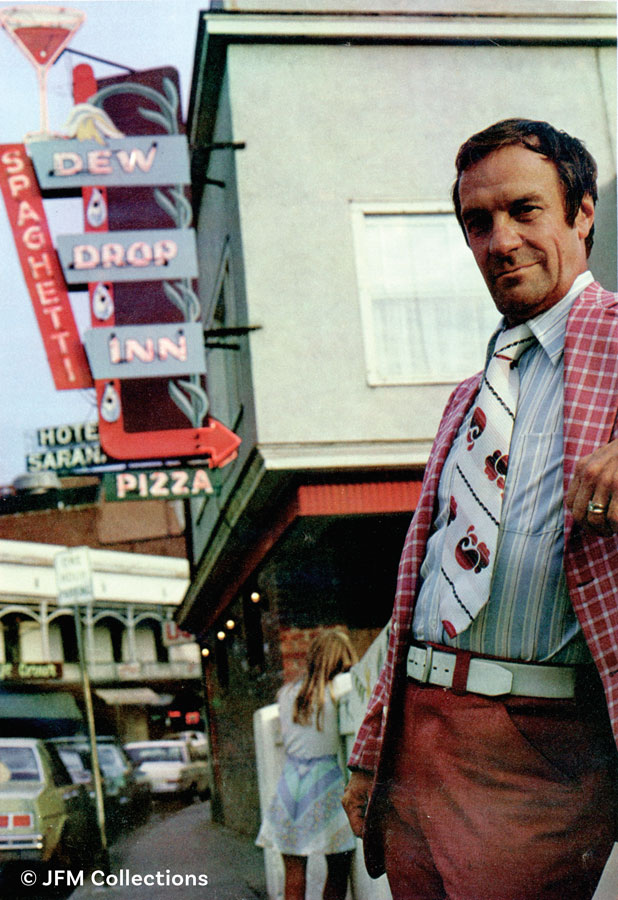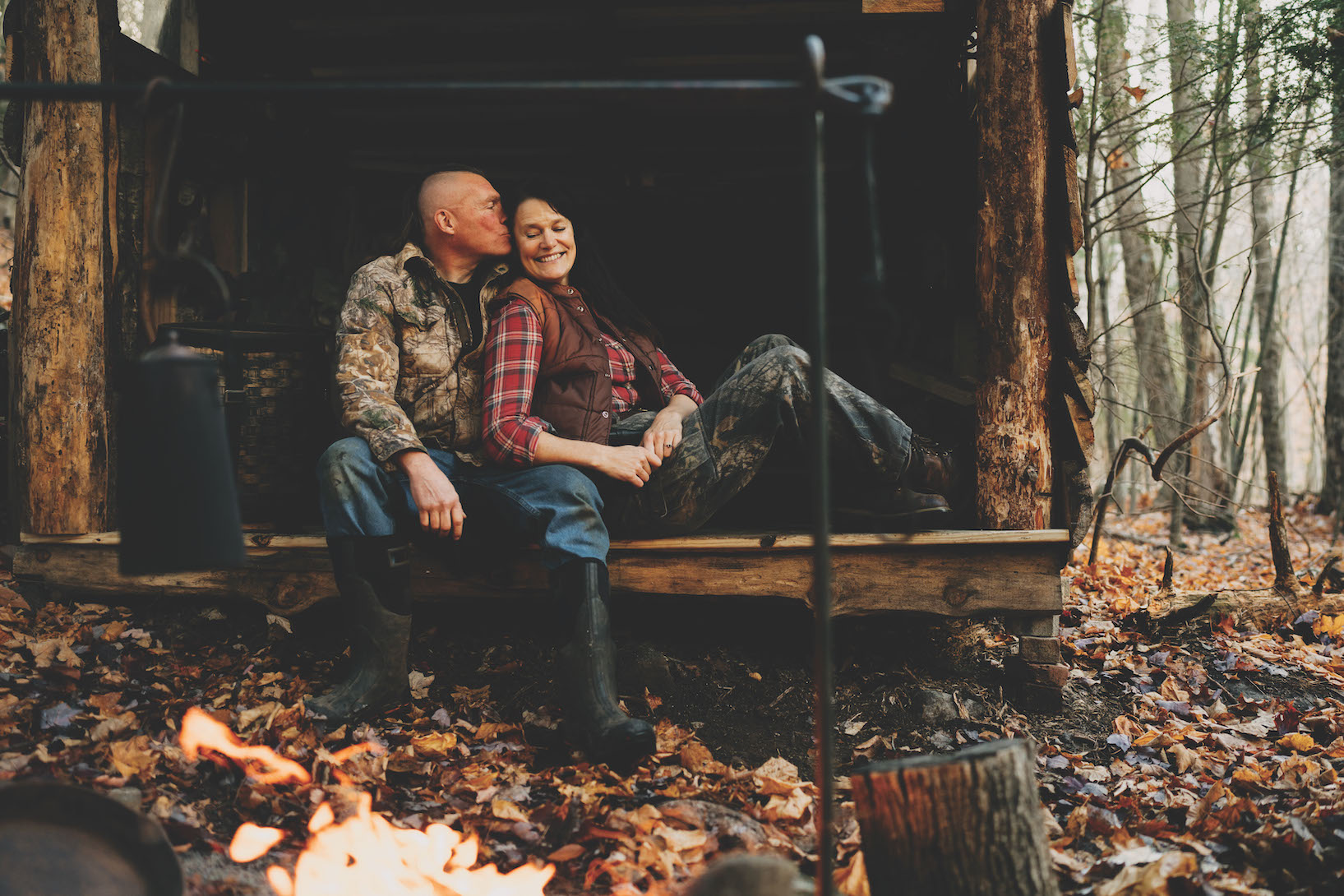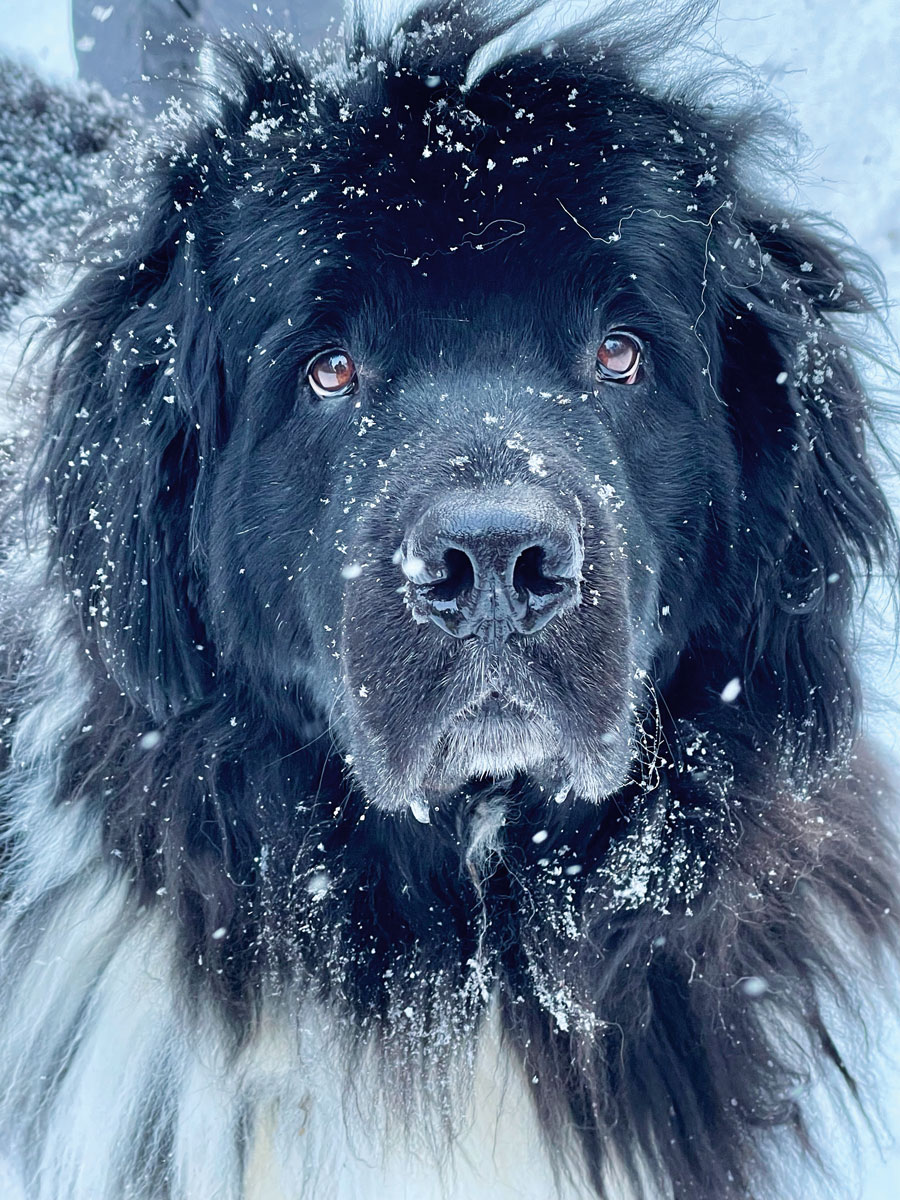illustration by Kristina Swarner
A Friends Lake tragedy brings out the kindness of strangers
Sometimes when we have nothing else to argue about, my husband, three sons and I debate which of our dogs has been the smartest. Over the past 15 years we have owned four: all Labrador retrievers released as puppies from Guiding Eyes for the Blind, made available for adoption as pets when, at eight weeks of age, they failed to demonstrate the exact mix of measurable traits needed to succeed as service dogs. When the members of my family debate which of our four would-be guide dogs was the smartest—well, Rebel’s name just never comes up.
A longtime Lab owner once told me that there is an expression: you train a black Lab with a newspaper, a yellow Lab with a stick, and a chocolate Lab with a brick. Whoever came up with that never met Rebel, a dimwitted black pup with shining, depthless eyes—alien eyes, my sons called them, because they came of age in an iPhone world and Rebel’s eyes did bear a funny resemblance to those of the alien emoji. We brought Rebel home four days before Christmas in 2015 and found that what he lacked in brains, he made up for in heart, or at least in the narcissistic belief that there was nothing a person could ever want more than to have him plop down on your lap, your knees, your feet. His general willingness, his malleability, was something we both marveled at and pitied. You could sit in a chair and pull him onto your lap, with his back against your thighs, and he’d remain belly up, perfectly still. You could take hold of his front legs and pull him around and around the kitchen island, his back legs splayed like he was a spatchcocked chicken. You could put medicinal eyedrops in his eyes or antibiotic ointment on his chin or give him a brisk shampoo in the cold water of the backyard hose and he would just stand there, making occasional eye contact, waiting for it to be over.
Oh, Rebel. If character is fate, then he stayed in character until the end. He never became a service dog, but he ultimately did provide a service, just not the one anybody expected. In his dopeyness, in his trust, and in his mysterious demise, he confirmed that the Labrador retriever’s worldview—strangers are simply friends you haven’t met yet—can spread to other species too. And that in every tragedy, large or small, there are moments of remarkable grace.
Our house on Friends Lake sits high on a steep slope and, on most holidays, is crammed full of people and dogs. During Christmas of 2016, there were 15 of us in the little house. My family of five, my sister’s family of four, our two parents, and a dog quartet: Rebel, our older Lab Iggy, and my sister’s two golden retrievers. December 31 was a gray Saturday, and our group was scattered; some were skiing at Gore Mountain, some were running errands, some were on the lake, where the younger kids had made a small hockey rink. They were smacking the puck around when my husband headed out with Iggy and Rebel for a walk. The lake—an imperfect 440-acre oval—was dotted with cross-country skiers; ice fishermen huddled on stools; and larger packs of skaters, some with impressively big rinks. And dogs, on and off leash. Dogs everywhere, because in the Adirondacks, of course, everyone has a dog.
I had gone with my eldest son to Price Chopper in Warrensburg to buy cheese for fondue and wine for New Year’s Eve and black-eyed peas for Hoppin’ John, which I planned to make later that day—our annual tradition, to ensure that we would have good luck in the coming year. As I stood in the canned food aisle, searching for black-eyed peas, my husband called. “Will you come home as soon as you can?” he asked, an edge in his voice. “I can’t find Rebel.”
And somewhere in the cosmos, someone whispered poof. Just like that, a dog was gone.
My family spent the rest of that Saturday, as the weather grew colder and darkness fell, walking and driving on the icy local roads, calling the puppy’s name. We looked on as people began to celebrate New Year’s Eve inside their snug houses, light from the windows spilling out in elongated rectangles onto the snow. Rebel had become like air: nowhere and everywhere, invisible but all around us. Every possibility—that he was lost, that he was lying injured beside the road, that he was in someone’s house, that he was under the ice—was unbearable.
Beneath a window in my kitchen I have a little ceramic dish that I walk by more than a dozen times a day. On the dish is printed this message: BE THE PERSON YOUR DOG THINKS YOU ARE. Given the attention most of us lavish on our dogs, it’s fair for them to assume that this spirit of generosity and acceptance extends to all God’s creatures, including our fellow man. Before we lost Rebel, I would scoff at such an idea. But shortly after he disappeared I read a little book called On Kindness. In it, authors Adam Phillips and Barbara Taylor write, “Kindness is a way of knowing people beyond our understanding of them.” Which helps explain, perhaps, how a dog can disappear and its owner is forced to rethink her whole world view.
Although we had only lived for three years on Friends Lake—or “Unfriends Lake,” as it is apparently known by some locals—word of our loss spread quickly. Neighbors (most of whom I didn’t know) began to email me with stories: about that time their black Lab pushed open a screen door of an unoccupied camp and couldn’t get out again. That time another black Lab ran away to hang out with the thoroughbreds at Chestertown Farm. That time a yellow Lab got trapped in an empty bedroom suite and survived for five days drinking water out of the toilet. Each of these stories provided both a happy ending and a new way of searching for Rebel that, though fruitless, felt somehow like a near miss. With each near miss our hearts would rise and then sink again, lower each time, like a birthday party balloon slowly losing its helium. Each dead end took us closer to something, but none of us were sure what.
I repeated the particulars of Rebel’s disappearance countless times: My husband was walking south on the lake, the expanse of frozen water on his left and land on his right. The shoreline was frozen, except around the few docks with bubblers. One bubbler seemed to be on a timer: the water around that dock was frozen when he and the dogs walked north past it, but running when they walked back. My husband saw nothing, heard nothing, with the shore to his right and the lake full of skaters and ice fishermen to his left and the dogs running joyfully—onto the shore, back onto the lake, onto the shore, back onto the lake—behind him. But when he stopped for a moment, turned, and called the dogs out to him, only Iggy emerged.
There are tragedies you take pains to avoid because you know how: you wear your seatbelt, you don’t smoke, you don’t take selfies on the edge of a cliff. And then there are the tragedies that you don’t even know to prepare for. Why does a conscientious owner let her dogs run free on an imperfectly frozen lake? By way of explanation, I can only quote the poet Mary Oliver: “of all the sights I love in this world—and there are plenty—very near the top of the list is this one: dogs without leashes.”
None of the strangers who aided in Rebel’s search scolded us for not knowing what might happen to a free-roaming puppy on a winter lake. Not Kayla, the lovely young woman working at Price Chopper who helped me copy 55 letters to stuff in neighborhood mailboxes. Not Steve Caporizzo, WABC meteorologist and Albany’s patron saint of lost pets, who responded to my Facebook message within an hour on New Year’s Day and posted to his 70,000 followers. Not the women at Rite Aid or the Valero station or Main Street Ice Cream Parlor, all of whom reacted sympathetically when I burst into tears in their presence. Not the dog warden or the SPCA receptionist or even the cashier at McCluskey’s Hardware, who told me that the reason she never got another dog was because of exactly what I was going through. She must have known, as I now do, why Louis C.K. refers to getting a puppy as a “countdown to sorrow.”
In the following days and weeks—and months!—so many strangers called me that I didn’t get all of their names. I wish I had. The amount of time people I didn’t know were willing to devote to the search for Rebel was overwhelming, and catching their kind efforts was like standing outside in a snowstorm, trying to catch snowflakes on your tongue. You couldn’t possibly catch every one, and they just kept coming.
We put up big neon signs, made a scent trail of kibble, fried meat on the grill for hours at a time, left our dirty laundry on the front porch. And we hired a dog tracker. Jamie Genereux drove over from Rhode Island with his black Lab, Dexter, in the back of his truck. Jamie had the bluest eyes—bluer than the January sky on the day we trudged over the lake and roads, land both public and private, searching, Jamie repeatedly asking, “Where’s the puppy, Dexter?” He worked his dog with a flat voice, never raising it except when Dexter got too close to a spot of open water near the shore. Then Jamie sharply commanded him to stay away. “Someone told me that a Lab wouldn’t drown,” I blurted.
“Labs,” he replied, “drown all the time.”
The members of my family of five were united in our grief and in the project at hand. There was only one argument, and that was after I referred to Rebel’s disappearance as “a small tragedy.” My oldest son was indignant that I kept using that phrase; in his mind, there was nothing “small” about it: not the love we had for Rebel, the events of that Saturday or the way he felt afterwards. At age 21, my son was young and lucky enough that he had never experienced what I considered “real” tragedy—the death of a friend’s child, 9/11. But for him, losing a dog was no small tragedy. His truth, as they say, was his truth. And so I removed the word “small.”
In an obituary for his dog Daisy, John Updike wrote, “She never grew up, and she never took pains to discover, conclusively, the things that might have diminished her curiosity and spoiled her taste. She died sniffing life, and enjoying it.” Rebel never grew up, and died doing something he loved: chasing Iggy around the lake.
On a Saturday night at the very end of June, six months after we last saw Rebel, I got a call that his body had been found. He was on the shore of the lake, close to the spot where he disappeared. I was four hours away, and a person I had never met pulled his body from the water. Another total stranger put it in a bag, first removing his collar and cleaning his tags for us to keep. And a third buried him on our property, on a ridge overlooking our house, overlooking the lake. I did not ask for these kindnesses. They just came to me, and I tried to hold on to them. Snowflakes melting on my tongue.
Over the coming months I tried not to imagine, but could not help but imagine, Rebel’s final moments. Did his collar catch on a branch under the water? Did he try to swim out to my husband, but the extreme cold of the water slowed his limbs the faster he paddled? Or did he just give up, like he gave up at eight weeks in the Guiding Eyes puppy test, his little canine brain telling his body that whatever he was doing, it probably wasn’t worth the effort? A guide dog is bred and trained to broaden the world for his visually impaired partner. To be the human’s eyes, to make his journey through life easier and better. Rebel didn’t have the drive, or intelligence, or discipline to provide years of support to a blind partner. But he did broaden my world.
Late one afternoon this past summer I kayaked north on Friends Lake, passing the spot where Rebel was found, feeling as I did a wave of melancholy that was sudden but not altogether unpleasant, like when you are swimming in the lake and move through a pocket of warm water. On my way back south toward our house, I stopped to chat with a couple sitting on their dock. I recognized their last name; they were the brother and sister-in-law of a man who emailed me frequently in the days after Rebel disappeared. And so, by way of introduction, I said, “I am the woman whose dog drowned.” Then their eyes softened, because—of course—they’d heard of me, and they shared their own story, how their elderly Lab had died the previous winter. I will always be known on the lake as the woman who lost her dog. Which is both embarrassing and sad. But that identity brings something else too: strangers who are no longer strangers, everywhere I look.
Kristin van Ogtrop is a literary agent at InkWell Management and the author of Just Let Me Lie Down: Necessary Terms for the Half-Insane Working Mom.

















